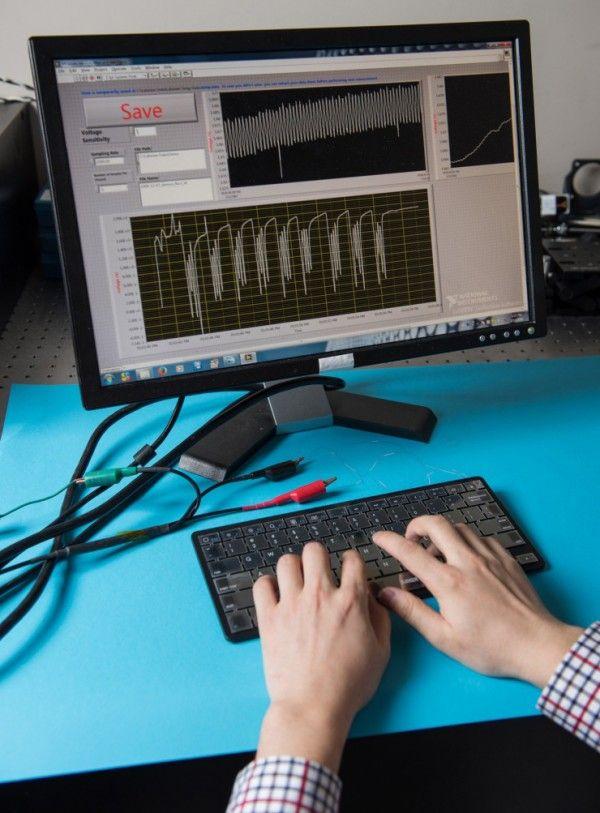Researchers from several universities, including the Georgia Institute of Technology, are working on a keyboard that can isolate typing patterns — such as pressure applied to each key and the time spent between strokes — to accurately identify users. Their findings were published in the journal ACS Nano.
Four layers of transparent film on the device, including polyethylene terephthalate, indium tin oxide, and fluorinated ethylene propylene, harvest and collect energy from the user’s fingertips. “This intelligent keyboard changes the traditional way in which a keyboard is used for information input,” said Zhong Lin Wang, a Regents professor at Georgia Tech’s School of Materials Science and Engineering. “Every punch of the keys produces a complex electrical signal that can be recorded and analyzed.”
According to Wang and his team, these signals create patterns that serve as a distinctive signature for each user. Tests of 104 subjects who were asked to type the word “touch” four times on their keyboards produced data that enabled the identification of typing patterns with “low error rates.”
Additional features of the self-powered keyboard include a hydrophobic coating that repels dirt and the ability to generate electricity from key strokes — enough to charge a small portable electronic device or power a transmitter to make the keyboard wireless. The researchers believe the keyboard will be competitive with existing keyboards, in both cost and durability.

